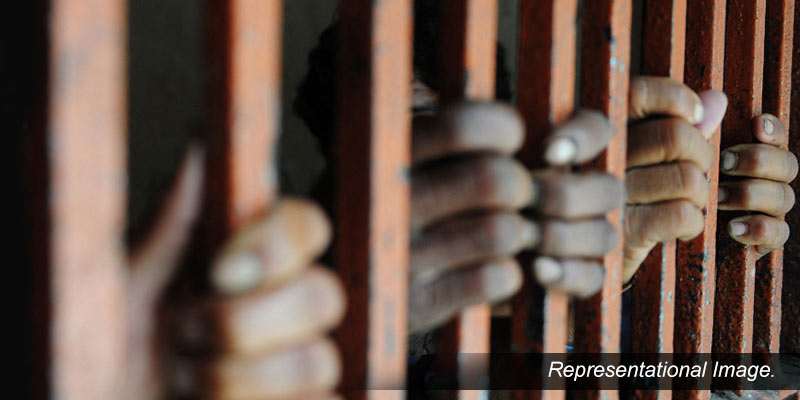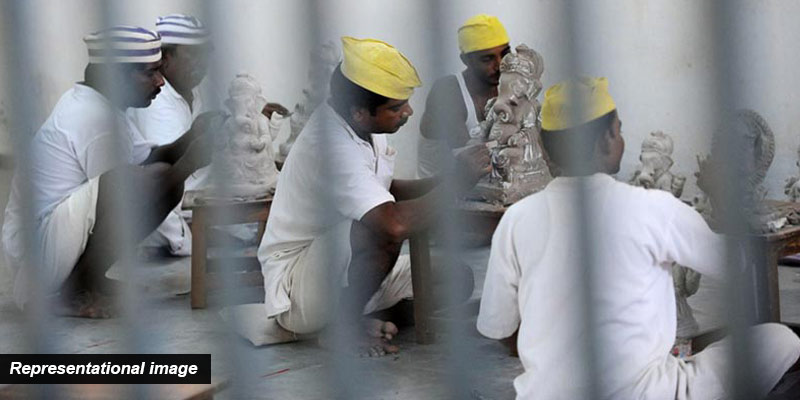- India
- Jan 02
The importance of curbing caste-based discrimination in prisons
• The Union Home Ministry has amended the prison manual rules to check discrimination and classification of inmates in jails on the basis of their caste.
• In a communication to chief secretaries of all states and Union Territories, the Union Home Ministry said to address the issue of any caste-based discrimination of prisoners, ‘Model Prison Manual, 2016’ and the ‘Model Prisons and Correctional Services Act, 2023’ have been amended.
• The changes have been made in the wake of the October 3, 2024 order of the Supreme Court on the caste-based discrimination of prisoners.
• Discriminatory laws enacted before the Constitution of India came into force need to be scrutinised and done away with, the Supreme Court said.
• Striking down as unconstitutional the provisions in state prison manuals that discriminate based on caste, the apex court directed all states and Union Territories to revise their prison manuals and rules.
• According to the new addition in the manual, the prison authorities will have to strictly ensure that there is no discrimination, classification, segregation of prisoners on the basis of their caste.
• It shall be strictly ensured that there is no discrimination of prisoners in allotment of any duty or work in prisons on the basis of their caste, it said.
• Changes have also been made in the ‘Miscellaneous’ of the Model Prisons and Correctional Services Act, 2023 with a new heading ‘Prohibition of caste-based discrimination in Prisons and Correctional Institutions’ as Section 55(A).
• The home ministry also said that the provisions of ‘The Prohibition of Employment as Manual Scavengers and their Rehabilitation Act, 2013’ shall have a binding effect even in prisons and correctional institutions.
Management of prisons
• ‘Prisons’/ ‘persons detained therein’ is a State List subject under Entry 4 of List II of the Seventh Schedule to the Constitution of India. However, considering its importance, the Ministry of Home Affairs has been providing necessary support and guidance to the states/Union Territories for efficient management of prisons in their jurisdictions.
• The Ministry of Home Affairs, through the Bureau of Police Research and Development (BPRD), in consultation with various stakeholders, including state prison authorities, correctional administration experts, etc, had prepared a ‘Model Prisons and Correctional Services Act, 2023’ and forwarded it to all states and UTs.
• Prison being a State subject, it is for the respective state governments to make use of the guidance provided in the Model Prisons and Correctional Services Act, 2023 and enact a suitable legislation on prisons in their jurisdictions for bringing improvement in prison management and administration of prisoners.
• The Model Act is a comprehensive document which covers all relevant aspects of prison management, that includes security, safety, scientific & technological interventions, segregation of prisoners, special provision for women inmates, taking appropriate action against criminal activities of prisoners in the prison, grant of parole and furlough to prisoners, their education, vocational training and skill development, etc.
• The Model Act has appropriate provisions for reformation, rehabilitation and integration of prisoners in the society. It also has provision for ‘Welfare Programs for Prisoners’ and ‘After-Care and Rehabilitation Services’, as an integral part of institutional care.
• It provides for classification and security assessment of prisoners and for lodging them in separate barracks/enclosures/cells in accordance with the assessment.
Caste-based discrimination during Colonial Rule
• According to the Committee on Prison Discipline 1836-38, to force a man of ‘higher caste’ to work at any trade would ‘disgrace him’ and his family, and would be viewed as cruelty. Convicts from communities lower in the caste hierarchy were expected to continue with their customary occupations in jail.
• The Committee’s recommendations for including a common mess instead of food allowances for prisoners to cook their own meals, which was greater accommodation of caste, were shelved.
• In the 1840s, prisoners were granted food allowances and they could prepare their own meals, duly observing their caste practices. To replace this, a stricter mess system was introduced in some prisons. However, prisoners were divided along caste lines and each group was assigned a different prisoner cook.
• In line with their overall approach, the colonial administrators linked caste with prison administration of labour, food, and treatment of prisoners. They emboldened the occupational hierarchy with legal policy and imported the vice of caste-based allocation of labour into the prison.
• The supposedly “polluting occupations” were allocated to the communities placed lower in the caste hierarchy. Not only were certain communities expected to carry out their “hereditary trades” within prisons, the supposed higher caste prisoners’ caste privileges were preserved.
• Caste was used as a ground for differentiating prisoners.
Certain provisions in prison manuals harm marginalised castes
• When caste prejudices manifest in institutional settings, such as prisons, they create further restrictions on the personal development and reformation of individuals from marginalised communities.
• When Prison Manuals restrict the reformation of prisoners from marginalised communities, they violate their right to life.
• Such provisions deprive prisoners from marginalised groups of a sense of dignity and the expectation that they should be treated equally. When prisoners from marginalised communities are subjected to discriminatory practices based on caste, their inherent dignity is violated.
• The Supreme Court noted that prison manuals violate Article 14 of the Constitution of India in so far as they privilege a particular section of the society based entirely on its caste identity. They cast disparate burdens on prisoners based on their caste-identity.
• Several provisions of different prison manuals impose a restriction on labour of certain communities. That is, these communities are allowed to undertake only one kind of labour. “Menial” jobs are prescribed to be performed by those communities who have been “accustomed” to performing such duties.
• The language used in such manuals/rules is rooted in a caste-based societal structure, where traditionally, certain communities were relegated to tasks considered impure or inferior, such as cleaning, manual scavenging, or other forms of servitude.
• These provisions disproportionately harm marginalised castes, perpetuate caste-based labour divisions and reinforce social hierarchies.
• The manuals/rules also reinforce stereotypes against denotified tribes. Rule 404 of the West Bengal Manual provides that a convict overseer may be appointed to be a night guard provided that “he does not belong to any class that may have a strong natural tendency to escape, such as men of wandering tribes”.
• The prison manuals allot tasks of a barber to individuals from a certain caste, while sweeping work is allowed to certain castes.
• The notion that an occupation is considered as “degrading or menial” is an aspect of the caste system and untouchability. The caste system rigidly assigns certain tasks to specific communities based on birth, with the lowest castes, being relegated to tasks considered impure or unclean, such as manual scavenging, cleaning, and other forms of physical labour.
• That a person belonging to such a community is accustomed to performing menial tasks is a mandate of the caste system.
• The provision that food shall be cooked by “suitable caste” reflects notions of untouchability, where certain castes are considered suitable for cooking or handling kitchen work, while others are not.
• The division of work on the basis of caste is a practice of untouchability prohibited under the Constitution.
• Such provisions often lead to an unfair distribution of labour within the prison system, with persons from specific communities performing honourable tasks, while those from marginalised communities are forced into undesirable work.
• It perpetuates the idea that some individuals are inherently suited to low-status labour based solely on their birth, reinforcing deep-rooted caste inequalities.
• Being forced to undertake the menial tasks simply because of their caste background robs prisoners of the element of choice that other prisoners enjoy.
• Forcing marginalised caste inmates to perform tasks like cleaning latrines or sweeping, without providing them any choice in the matter and based purely on their caste, constitutes a form of coercion.
The right to overcome caste barriers
• Forcing the members of oppressed castes to selectively perform menial jobs amounts to forced labour under Article 23, the apex court has highlighted. Dr B.R. Ambedkar had articulated that the socioeconomic situation of oppressed communities should not be used to exploit their labour. Article 23 was incorporated into the Constitution to protect the members of oppressed castes from exploitative practices, where their labour is taken advantage of, and without any adequate return.
• Caste prejudices and discrimination hinder the growth of one’s personality.
• Article 21 provides for the right to overcome caste barriers as a part of the right to life of individuals from marginalised communities. The protection provided by Article 21 can be seen as a constitutional guarantee that individuals from marginalised communities should have the freedom to break free from these traditional social restrictions. It extends beyond mere survival to ensure that they can flourish in an environment of equality, respect, and dignity, without being subjected to caste-based discrimination which stifles their personal growth.
• Refusal to check caste practices or prejudices amounts to cementing such practices. If such practices are based on the oppression of the marginalised castes, then such practices cannot be left untouched. The Constitution mandates an end to caste discrimination and untouchability.
Manorama Yearbook app is now available on Google Play Store and iOS App Store


